Ada Lovelace has seen an increase in her popularity in recent years, and for good reason. She’s considered by many to be the world’s first computer programmer, and her insights into the possibilities of computers were way ahead of their time. She’s pretty great, and I encourage you to check out more if you’re unfamiliar with her work. I mean, she’s got her own musical. Do you have your own musical? Probably not.
Lovelace & Babbage from Genius Games seeks to celebrate the Analytical Engine, which the duo worked on together. Players will seek to “program” different operations, trying to complete their programs before everyone else while picking up bonuses. Beneath this intriguing theme, you’ll find a game that will rely heavily on the math skills of each player. So will it work for everyone? Read on to find out.
Math Can Be Fun!
In Lovelace & Babbage, you are working to create programs for other scientists. You’ll do this by performing different mathematical operations on a scoresheet to achieve certain values which will give you different bonuses. You’ll be trying to do this as quickly as you can, as the first person to finish flips over a timer. Everyone else has to finish their calculations before the timer runs out, trying to get as many of those bonuses as they can.
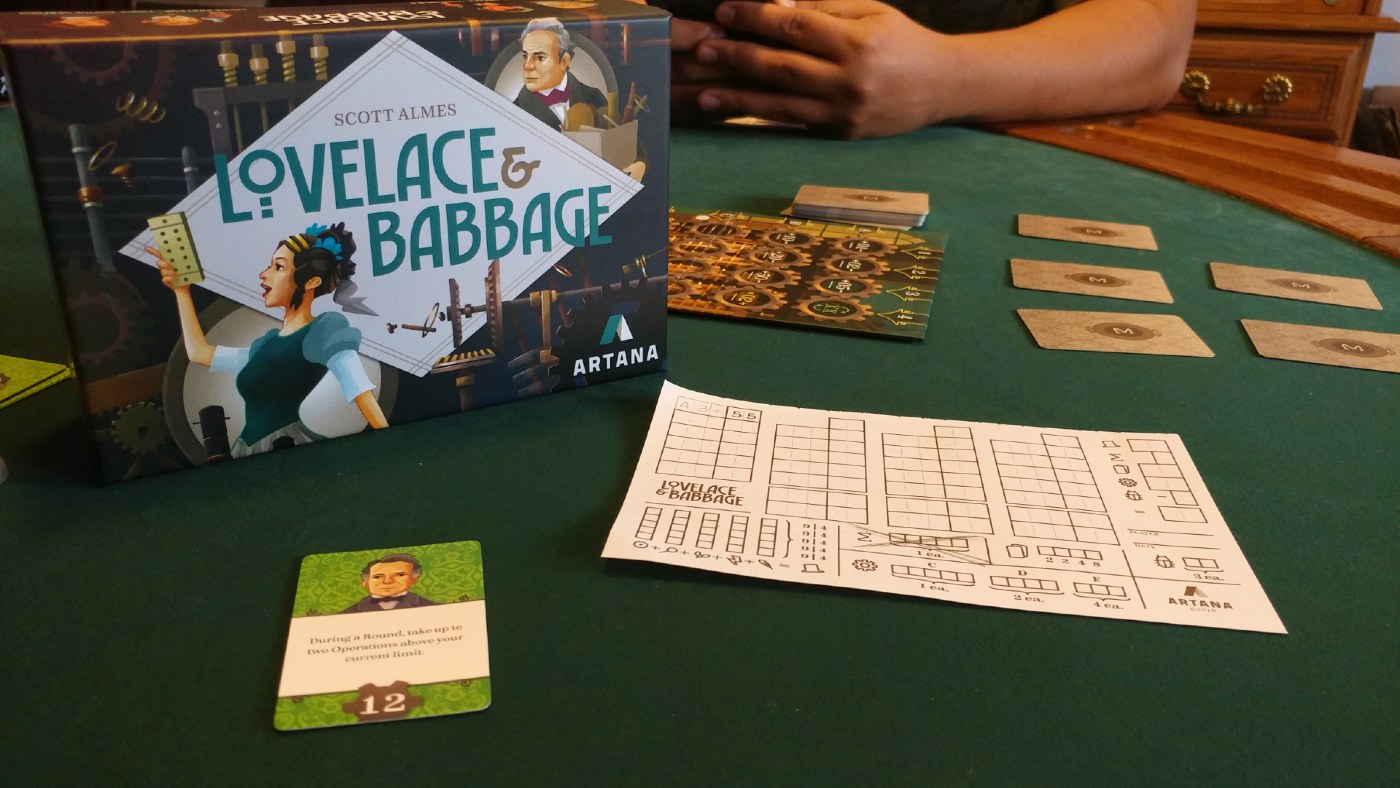
The game starts with two rows of operations that you can perform on your starting value of 55. These range from simply adding or subtracting one or two from your number to switching the two digits of your number.
As you progress through the rounds, new operations become available. These aren’t necessarily more complex – they’re still mostly addition or subtraction – but the numbers are a little more cumbersome. However, you’ll want to try to use these operations, as they can earn you bonus points.
Full Credit
Oh, you like points? Well, there are lots of different ways that players can score points. Everyone selects a goal card (called Subroutines) at the beginning of the round that gives them one target number. In addition, Patrons are available each round, and if you match their numbers you’ll receive influence. Get more of a type of influence than other players by the end of the game, and you’ll score points.
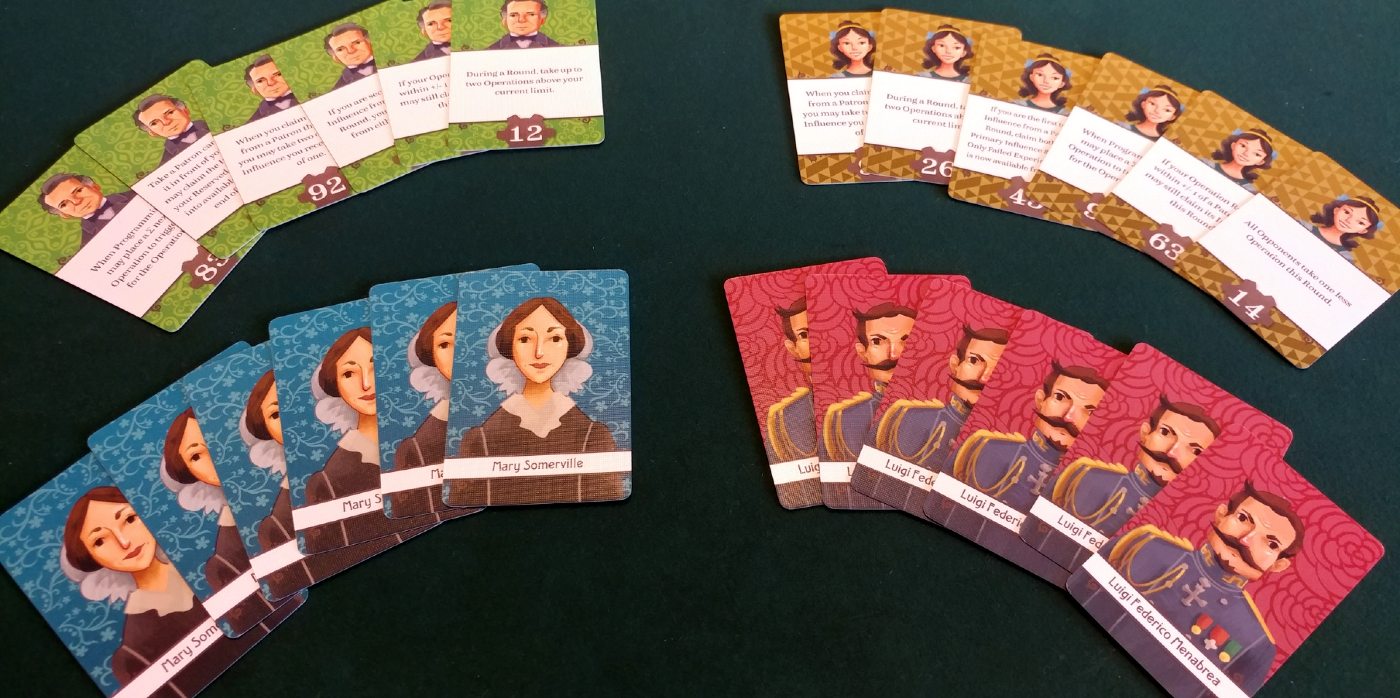
It can be really hard to score lots of points all by yourself, but you’ll have a little help. Remember those target Subroutine cards? Well, if you manage to hit the target number, you’ll have access to a special power for a future round. This can include adding room for more operations, or even letting you just get close to a number instead of getting the exact amount.
The game is played over four different rounds of calculations. As usual, whoever has the most points at the end of the game wins!
Basic Operations
At its core, this is a math game. Most of what you will be doing lots of adding, subtracting, multiplying, and dividing to try to get to specific values. You’ll also have to work efficiently because you only get to complete five operations in any given round (unless you’ve earned bonuses in past rounds). So if your plan was to just add one over and over, you’re out of luck.
Some might read this description and think, “Math? Well, that doesn’t sound like it could be any fun.” And even though I’m a math teacher, I can totally understand that sentiment. However, the variety of point-scoring opportunities in the game create more of a puzzle solving environment.
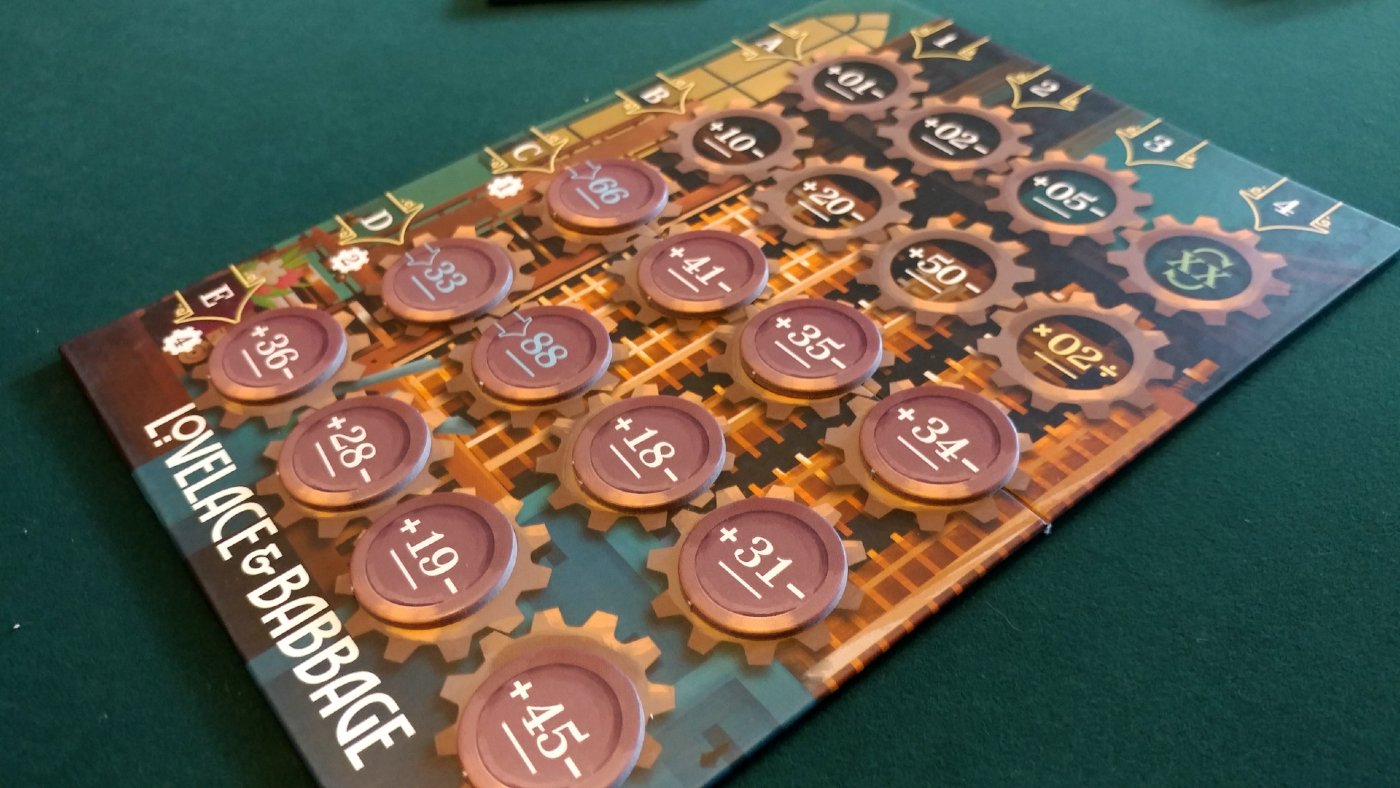
What do I mean? Well, you’re generally going to aim for your subroutine number. It may be easy to add a few different numbers and get to that value, but you see that you could possibly change your program so that you also score on a patron card. But wait, that program in the fourth row could possibly work, and it will also get me bonus points. If you play the game right, you’ll rarely be looking for the most straightforward calculation, but instead the one that will get you the most points.
Is It Divisive? (That’s a Math Joke, Right?)
Personally, I had a lot of fun with this game. I’ve always been pretty good at mental calculations, and so this game provided some really fun and interesting challenges for me. I sat down with my friend Adrian to play one afternoon, who is a math major, and the two of us had a really good time. By the end, we both agreed that we would certainly bring it back to the table.
I could also see this being a great game for me to use in my math classes. It certainly isn’t going to teach many advanced skills, but it would work as a good reinforcement of mental math, which is pretty important. And while they may prefer to play yet another endless round of Apples to Apples, I’m sure they’ll all agree that this is better than some worksheet or more online practice problems.
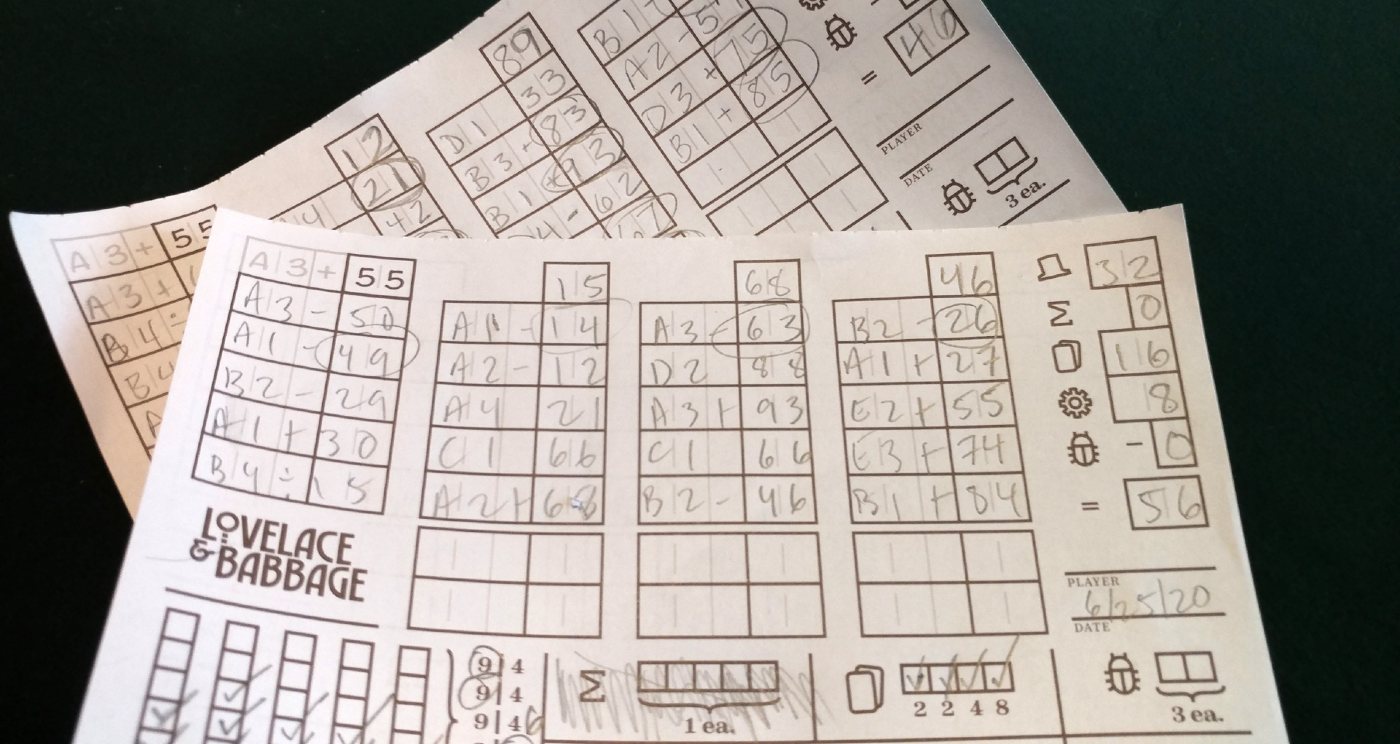
However, I know that not everyone is like me, and I certainly wouldn’t bring this to the table with everyone. So who is this game for? Well, if you’re mathematically inclined, give it a shot. Also, if you have kids who are on the later side of elementary school, I think this would also be a great title to add to the collection. It will be one of those experiences where your kids are having fun without realizing that they’re learning or practicing their math skills.
All in all, I think Lovelace & Babbage is a delightful little game, and one I’m glad I’ve added to my collection. While it might not hit the table often, with the right group of friends, this will always be a hit.
You can get a copy of Lovelace & Babbage through Genius Games web store, through Amazon or from your local game store!
While Genius Games provided us with a review copy of Lovelace & Babbage, we have sought to provide you with our honest, unbiased opinion of the game.
Highs
- Some great mechanics that make it more than just math problems
- Solid artwork that really fits the theme
- Honoring to people who deserve their own game
Lows
- It may be tough to find the right people for this game
- I would’ve liked more variety in the operation tiles added in later rounds
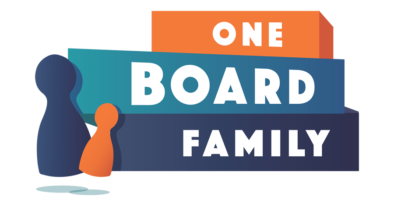
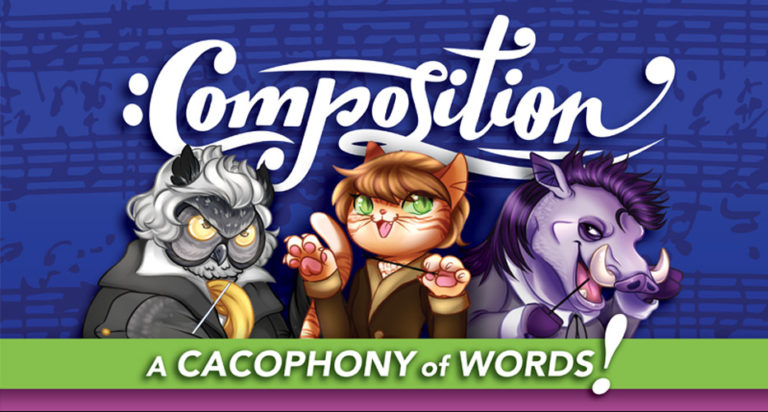
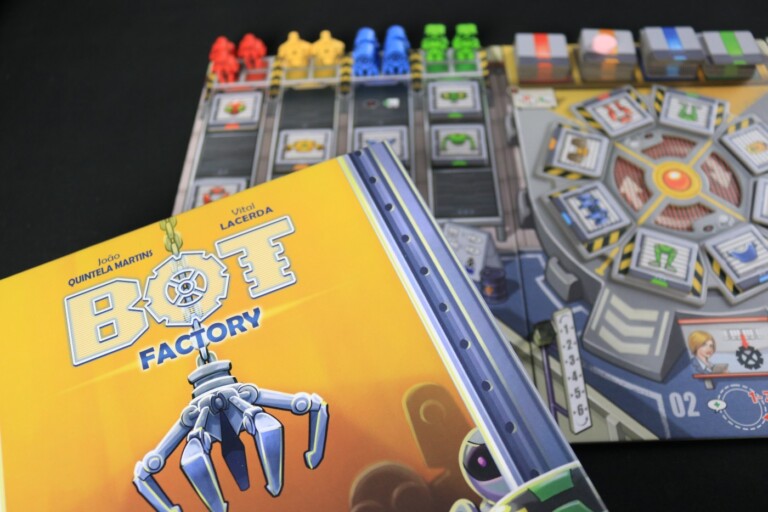
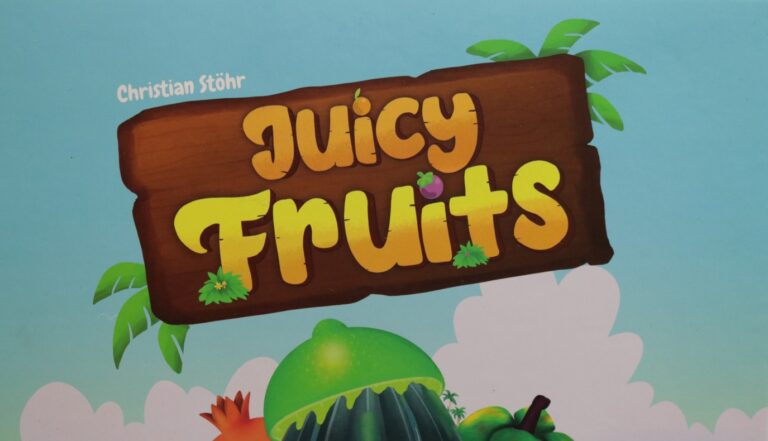
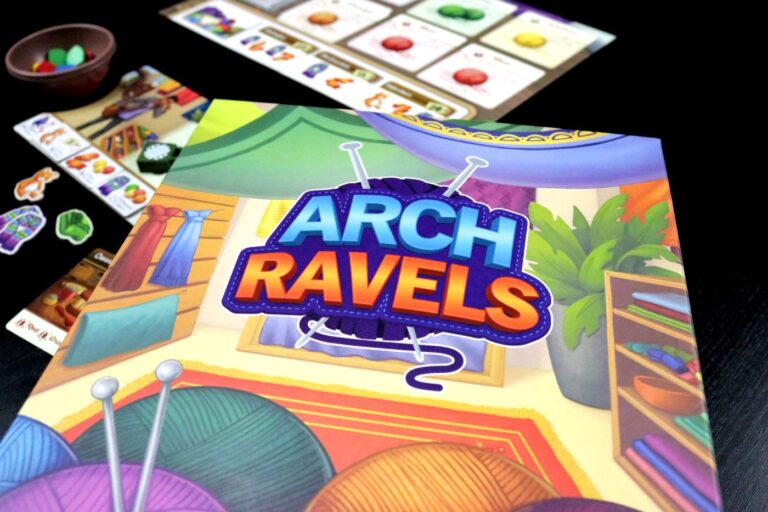
[…] Lovelace & Babbage … […]
[…] Lovelace & Babbage is a math-based programming game from Genius Games. The game reinforces basic math skills that would be a good fit for late elementary through early high school students. Ric really enjoyed how the game requires players to perform mental math to accomplish goal cards that give influence points. Genius Games even tied the game to what most consider the first computer programmer, Ada Lovelace. Lovelace & Babbage is a great way to game and encourage math skills that the kids are learning in school. […]